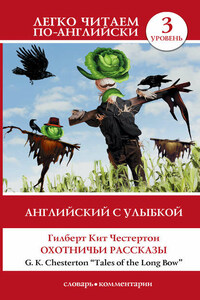My friends and I were sitting by the fire in an old house. It was Christmas Eve, so we were telling strange stories to each other. After some time, my friend Douglas said he knew one really terrible and scary story.
“Nobody but me, till now, has ever heard it. It’s quite horrifying.” said Douglas, “It’s beyond everything. Nothing at all that I know touches it.”
“Well then,” I said, “just sit right down and begin.”
He turned to the fireplace, kicked a log, watched it for a moment. Then, when he turned back to us, he said: “I can’t begin. I will have to send a message to town. The story’s written. It’s in a locked drawer—it has not been out for years. I could write to my man and attach the key; he could send down the packet as he finds it.” I begged him to write as soon as possible; then I asked him if the experience in question had been his own. He answered quickly. “Oh, thank God, no!”
“And is the record yours? You wrote the thing down?”
“Nothing but the impression. I wrote that here,”—he tapped his heart. “I’ve never lost it.”
“Then your record—?”
“Is in old, faded ink, and in the most beautiful hand.” He hung fire again. “A woman’s. She has been dead for twenty years. She sent me the pages before she died. She was the most lovely person, ten years older than me. She was my sister’s governess,” he said quietly. “She was the nicest woman I’ve ever known in her place; she would be worthy of anything. It was a long time ago, and this situation happened long before that. I studied at Trinity and found her at home when I came here for the second summer. I was often there that year—it was a wonderful year; and in her free time we walked and talked in the garden several times. Oh yeah, don’t smile: I really liked her, and to this day I am glad to think that she liked me too. If she hadn’t, she wouldn’t have told me. She never told anyone. “
“Because the thing had been such a scare?”
He continued to look at me. “You’ll easily judge,” he repeated: “you will.”
I fixed looked at him, too. “I see. She was in love.”
He laughed for the first time. “Yes, she was in love. I saw it, and she saw I saw it; but neither of us spoke of it. I remember the time and the place—the corner of the lawn, the shade of the great beeches and the long, hot summer afternoon. It wasn’t a scene for a shudder[1]; but oh—!” He walked away from the fireplace and leaned back in his chair.
“You’ll receive the packet Thursday morning?” I asked.
“Probably not till the second post.”
“Well then; after dinner—”
“You’ll all meet me here?” He looked us round again. “Isn’t anybody going?” It was almost the tone of hope.
“Everybody will stay!”
When the story arrived from London, it turned out that the story that he promised to read to us really needed a few words of the prologue[2] for a better understanding. The important thing to know is that his old friend, who was the youngest daughter of a poor country pastor, came to London for the first time at the age of twenty. She found a job through a newspaper and was going to work as a governess for two children. When she arrived at the house in Harley Street, she found it to be large and impressive. The man she was meeting was like a character from a dream or an old novel. He was handsome, confident, and kind. He made her feel like he was doing her a favor and she felt grateful for it. She imagined him living in a beautiful house filled with things he brought back from his travels and hunting trips. However, he wanted her to go immediately to his family’s old home in Essex.
After the death of their parents in India, he became the guardian of his little nephew and little niece—the children of his younger military brother, who had died two years ago. He felt really sorry for the poor children and did everything he could; in particular, he sent them to his other house and from the very beginning he kept them there with the best people he could find to look after them. The difficulty was that they had no other relatives, and he spent all his time on personal matters. He had put them in possession of Bly, which was healthy and secure, and had placed a wonderful woman, Mrs. Grose, in charge of it. Mrs. Grose had been his mother’s maid. Now she was a housekeeper, and also looked after a little girl. There are many other servants there, but, of course, the biggest power will belong to the young lady who will go there as a governess. During the holidays she would also have to look after a little boy who had been at school for one semester and who would be back from one day to the other. At first, the two children had a young lady whom they had the misfortune[3] to lose. She coped with them perfectly until her death. Little Miles had no choice but to go to school after her death. Mrs. Grose, since then, had done all she could for Flora; and there were, further, a cook, a housemaid, a dairywoman, an old pony, an old groom, and an old gardener.
















